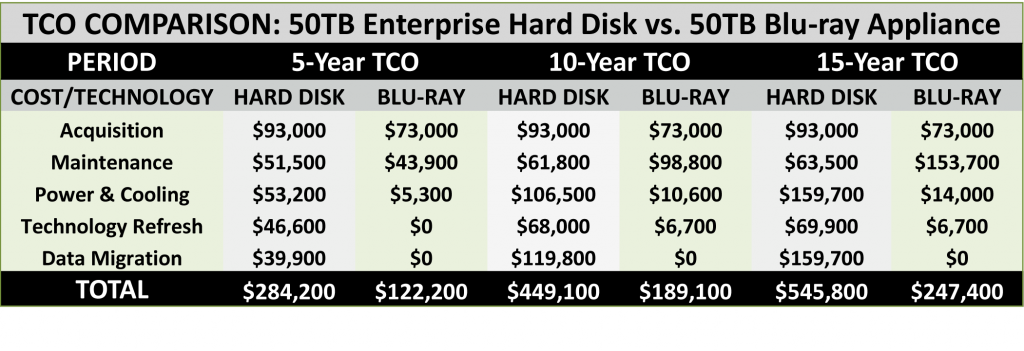TCO Long-Term Archiving
A core best practice for effective storage management is archiving technology, that frees up storage resources, improves performance and protects data that must be retained. Comparing different technologies for archival storage is complicated by the technology life cycles of the underlying components.
Tape technology has an incompatibility every 3-4 years (e.g. LTO 1 media can not be read by LTO 5) which requires technology refreshes and complete data migrations. Magnetic Hard Disks also have a relatively short life time yielding the same requirement for technology refreshes and data migrations at least every 4 years.
The key issue is that archive storage involves longer retention periods yielding data migrations and technology updates for hard disk and tape. These involve high costs and risks, positioning Blu-ray as a superior archiving technology for “file-and-forget” for longer periods of time, offering:
- Lower cost than existing primary storage
Best TCO with low energy consumption and cooling costs and no need for data migration and constant data back-up. - Long term data retention
Blu-ray media longevity of 50 years and 30 years backwards compatibility in non-proprietary data format. - Compliance with international regulations
UDF standards based media offers intrinsic hardware level WORM Compliance - Off-line management of very old information
Removability of media allows for unlimited off-line archive storage which allows system administrators to safely remove data and offload the network.
The total cost of ownership of Blu-ray Storage for long-term archive storage is less than half the cost for traditional alternatives like Hard Disk and Tape







